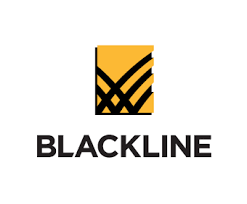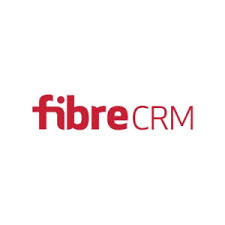Virtual Data Room Overview: Key Features, Benefits, and Uses

In a world where sensitive data flows across borders and industries, the virtual data room (VDR) has become a critical tool. For accounting firms in particular, it offers a way to manage confidential documents securely while supporting clients through audits, mergers, acquisitions, or fundraising processes. A virtual data room is more than a storage platform, it is a controlled environment that enables transparency, speed, and trust.
Virtual Data Room Defined
A virtual data room is a secure online repository used to store and share sensitive documents with multiple stakeholders. Unlike traditional filing cabinets or physical data rooms, a VDR provides controlled digital access. For accounting professionals, a virtual data room replaces stacks of binders with a central, encrypted system where documents can be uploaded, categorized, and reviewed in real time.
Why Accounting Firms Are Turning to VDRs
Accounting firms handle large volumes of confidential material. Audit files, client financials, tax documents, and compliance reports all carry legal and reputational risk if mishandled. A virtual data room provides:
- Confidentiality: Encrypted access ensures sensitive financial records remain protected.
- Efficiency: Documents can be shared instantly with internal teams or external parties such as regulators or investors.
- Control: Permissions can be set at file or folder level, restricting who can view, print, or download information.
- Auditability: Every action inside the virtual data room is logged, providing an audit trail that strengthens compliance.
For firms facing tight deadlines, the ability to grant controlled access to multiple users at once is transformative. Instead of sending endless email attachments or using generic cloud folders, a virtual data room ensures accountability at every stage. This not only improves workflow but also strengthens client confidence.
VDRs at the Heart of Deals
When clients undergo a merger, acquisition, or fundraising round, due diligence becomes central. This process demands the secure sharing of financial statements, forecasts, and operational data. A virtual data room allows accounting firms to coordinate due diligence with ease. Buyers, sellers, lawyers, and advisors can all access the same set of documents in one place. Permissions ensure that confidential elements remain restricted while keeping the process transparent.
For accounting teams, this means less time managing logistics and more time providing strategic insights. The virtual data room acts as both a safeguard and a facilitator, ensuring no sensitive detail is lost while keeping the transaction moving quickly. In competitive deal-making environments, speed and accuracy matter, and the VDR delivers both.
Compliance and Risk Front and Center
Accounting firms operate in an environment shaped by strict regulations and client trust. Virtual data rooms support compliance by enforcing security standards such as multi-factor authentication and data encryption. They also reduce the risk of data leaks that could damage client relationships or attract regulatory penalties. In addition, detailed reporting features allow firms to demonstrate compliance with industry requirements, strengthening their credibility.
As cyber threats evolve, having a defensible audit trail is no longer optional. The ability to track who accessed what, and when, gives firms protection in case of disputes or regulatory reviews. For many, this makes the virtual data room not just a convenience but a necessity.
Beyond Deals: Everyday Workflows
While often associated with high-profile transactions, virtual data rooms are increasingly used for routine document management. Firms use them to collaborate on audit engagements, store internal reports, or coordinate global teams. For multinational clients, a virtual data room provides a single, consistent platform regardless of geography, helping teams work across time zones without compromising security.
Everyday use of virtual data rooms also reduces reliance on email chains or unsecured file transfers. Over time, this creates a more disciplined, organized approach to information management.
Competitive Advantage in a Crowded Market
For accounting firms, adopting a virtual data room is not just about keeping pace with digital change, it is about standing out in a competitive market. Clients expect security, speed, and professionalism. Firms that integrate virtual data rooms into their workflows can demonstrate these qualities while also saving time and reducing risk.
The benefits extend beyond efficiency. A well-managed virtual data room shows clients that their data is being handled with care, reinforcing trust. In a business built on relationships, that trust often makes the difference in winning and keeping clients.
The Outlook for VDRs
The demand for secure document sharing is only growing. As data privacy laws expand and clients expect instant access to information, the virtual data room will remain central to how accounting firms operate. With cyber threats rising, firms cannot afford to rely on outdated systems. By investing in a virtual data room, they protect sensitive information and deliver a smoother experience for clients.
Technology providers are also adding new features such as AI-driven search and automated redaction. These tools are set to make virtual data rooms even more valuable, streamlining processes and reducing human error.
Wrapping Up
A virtual data room is no longer a specialist tool reserved for large transactions. It has become an everyday necessity for accounting firms managing sensitive information. By combining security, efficiency, and control, a virtual data room provides the infrastructure needed to handle complex financial data with confidence. For firms seeking to build trust and deliver value, adopting a virtual data room is both a safeguard and a competitive advantage. As business becomes more global, digital, and regulated, the role of the virtual data room will only expand.





